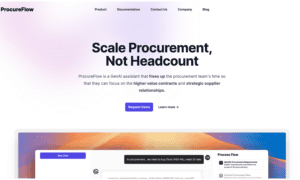Data and analytics have become extremely important for businesses of all sizes. Collecting and analyzing data from tools like the Xero accounting system provides valuable insights that can help you make informed decisions to improve your products/services, marketing strategies, and overall business performance. Implementing analytics tools and techniques is a key way to leverage data to grow your business.
Use Web Analytics to Understand Your Website Traffic and Customers
Web analytics allows you to track and analyze traffic to your website. This provides insights into your visitors – where they come from, what pages they visit, bounce rates, and more. Key metrics to analyze include:
- Traffic sources – Direct, organic search, social media, referrals, etc. See what channels drive the most traffic to pinpoint effective marketing.
- Landing pages – Find your most popular landing pages. See exit rates to identify ineffective pages.
- Bounce rate – High bounce rates indicate poor content/user experience. Identify site pain points.
- Conversion rates – Monitor online conversions to see what’s working. Improve underperforming pages/offers.
By understanding your visitors and how they interact with your site, you can tailor content and site design for better engagement and conversion.
Leverage Marketing Analytics to Refine Campaigns
Marketing analytics examines data from your campaigns and ad spend to determine effectiveness. Key metrics include:
- CTRs – Which ads/keywords have the highest click-through rates? Focus efforts on what resonates.
- Conversions – Which channels convert visitors best? Reduce spending on underperforming channels.
- ROI – Which initiatives deliver the highest return? Double down on the most profitable activities.
Analyze campaign source, medium, content, offers, and more to identify optimization opportunities. This helps maximize your marketing ROI.
Use Business Intelligence Tools to Track Key Performance Indicators
Business intelligence (BI) tools pull data from across your systems to give insights into core business metrics and KPIs. Useful features include:
- Sales analytics – Track sales numbers, growth trends, customer lifetime value and more.
- Financial analytics – Monitor expenses, profitability, and cash flow to make smart financial decisions.
- Operational analytics – Analyze productivity, workflows, inventory, etc. to improve operations.
- Custom reporting – Create reports/dashboards on key metrics specific to your business needs.
The bird’s eye overview of your business KPIs enabled by BI tools helps identify what’s working well and potential areas of improvement.
Leverage Data Analytics to Drive Informed Business Decisions
The most important part of implementing analytics is to actually leverage the insights gleaned to make smart business decisions. Use website analytics to optimize pages and content for higher conversion. Refine marketing campaigns to maximize ROI. Analyze operational data to boost productivity. The possibilities are endless.
The key is to focus your analytics efforts on metrics and KPIs that are most relevant for your specific business goals. Let data guide your decision-making to achieve those goals. Analytics tools equip you with the actionable insights needed to make product, marketing, and operational improvements that ultimately drive business growth. So start leveraging analytics today.
Implementing analytics across your website, marketing efforts and business operations provides data-driven insights that are invaluable for making smart decisions. Start monitoring and analyzing key metrics to optimize your business for improved performance and growth. With the right analytics strategies, you can unlock the power of data to take your business to the next level.



































